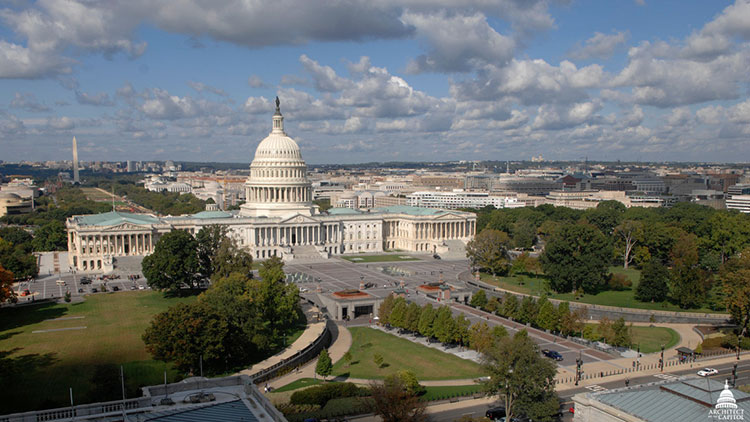Senate Bill Creates Music Streaming Compensation Framework

The smarter way to stay on top of broadcasting and cable industry. Sign up below
You are now subscribed
Your newsletter sign-up was successful
A Senate bill has been introduced that would create a framework for better compensating artists for digital plays of their music and making it easier for music rights organizations to collect those fees from distributors of streamed music.
Sens. Orrin Hatch (R-Utah), Sheldon Whitehouse (D-R.I.), Lamar Alexander (R-Tenn.), Dick Durbin (D-Ill.), Bob Corker (R-Tenn.), Kamala Harris (D-Calif.), Johnny Isakson (R-Ga.), Chris Coons (D-Del.) and Doug Jones (D-Ala.) teamed up on the Senate version of a similar House bill, which they characterized as the “most significant change in music licensing laws in decades."
The "Music Modernization Act would create a new, simplified licensing entity to make it easier for digital music companies to obtain a license for and play songs," said Hatch's office. "The entity will also ensure songwriters are paid the royalties they are owed.
In addition, the bill would revise outdated songwriter royalty standards to ensure that songwriters are paid a fair market value for their work."
"This is a consensus piece of legislation that brings together all sides of the music industry, and I intend to work my hardest to see it enacted in the near future," said Hatch.
The bill:
"Adopts a simple licensing system for digital music services to make it easier for services to obtain a license to play a song and to reduce the likelihood of litigation."
The smarter way to stay on top of broadcasting and cable industry. Sign up below
"Ensures songwriters will be paid the fair market value for their songs by:
"Directing the Copyright Royalty Board to set songwriter royalties according to the fair market value rather than the
current, below-market standard.
"Removing a provision of law that narrows the scope of evidence the federal rate court may consider when setting songwriter
royalties for songs performed in public, such as in a restaurant or at a concert."
Music Licensing groups strongly support the bill.
The National Music Publishers’ Association (NMPA), Broadcast Music Inc. (BMI), the American Society of Composers, Authors and Publishers (ASCAP), the Nashville Songwriters Association International (NSAI) and the Songwriters of North America (SONA) joined to praise the bill, saying it "ensures that songwriters are paid when digital music services use their music, improves transparency, provides for better royalty rates, and gives songwriters increased involvement in how mechanical rights are licensed."
The National Association of Broadcasters, whose members pay for music, had issues. While is commended the legislators for a "consensus" solution to "some of the core issues facing songwriters, music publishers, and on-demand streaming services," it said that "unfortunately, the current bill text includes unrelated provisions that will almost certainly result in unjustifiable cost increases for local radio and TV broadcasters and many other music licensees, for whom the rest of the legislation is largely irrelevant."
The provision NAB is mainly unhappy with is broadening the scope of evidence that a rate court can consider when setting those rates.
Contributing editor John Eggerton has been an editor and/or writer on media regulation, legislation and policy for over four decades, including covering the FCC, FTC, Congress, the major media trade associations, and the federal courts. In addition to Multichannel News and Broadcasting + Cable, his work has appeared in Radio World, TV Technology, TV Fax, This Week in Consumer Electronics, Variety and the Encyclopedia Britannica.

